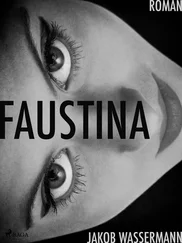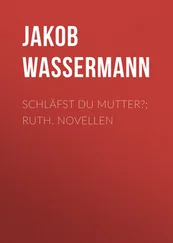A MEADOW APPEARS ON THE HORIZON
At that time, it was the fashion for the wives of the bourgeoisie to parade their devotion to their children. So-called toughening measures, hygienic principles, pedagogic instruction — all that was bandied about with a solemn seriousness, talked about in meetings and pursued in the most modern way. One might have supposed the offspring of these well-off ladies, who could afford any extravagance, would grow to be a morally and physically perfect race of beings, equipped to transform the prospects of human society. Unless I’ve missed it, this has not proved to be the case.
Ganna was resolutely against sending her children to an ordinary school. They were home-taught, which, over time, turned out to be an expensive business. Every classroom, according to Ganna, was a toxic dump, rife with infectious diseases, an inferno of germs, as she put it. Further, she was dead set against conventional methods of teaching and child-rearing. She favoured special treatment, respect for the individual, holistic development of the personality. Splendid — but where were the institutions where such things were promulgated? I was suspicious of the theories of the latest wave of pedagogues, whose child-worship laid the foundation for the brutalise of a later era.
I put it to Ganna that children needed to be taught to exist in a community; that they would turn into selfish anti-social brats if they were not made acquainted with self-sacrifice, adversity and shocks; where would they end up if not with the millions of others, what remorse and revenge were lying in wait for them when the day of reckoning and levelling finally arrived? I was wasting my breath. To a spirit like Ganna’s the state of the world in which she moved must seem unalterable, since she herself harboured no possibilities of change either. She embarked on lengthy fantasies on the cruelty of schoolmasters, who had no interest in knowledge and understanding, but only in censorship and morals. Weren’t the newspapers full of the recent spate of suicides among schoolchildren? No, she wasn’t going to allow the little innocents to be routinely poisoned. ‘Your schools are prisons,’ she exclaimed with the expression of a fanatical preacher, ‘I’d rather be drawn and quartered than condemn my children to a convict existence like that.’ My children! Ganna, Ganna! My house, my husband, my children: that was all that counted, with ‘your’ lying on the ground like a dead dog.
What did she have in mind? Ferry was almost ten, his case was becoming urgent, he couldn’t go on being kept apart from his contemporaries like a prince; nor could Elisabeth. They were living in a hothouse as it was. They needed to burst through the glass walls. It seemed to me I was fighting an undeclared war with Ganna over the souls of the children. It wasn’t love and affection that had started it, but what I term the atmospheric effect of a human being, the silent and pervasive influence of a protective presence. No one has yet established how the blood of father and mother become mingled to inheritance and destiny; nor was it even certain that parentage counted for more than principles. Ganna’s cosseting of the children was a serious threat to their welfare. But was I sufficiently different to be able to decide? It’s impossible to give a young human enough love, I would sometimes weakly say, as though love can be a universal remedy against unhappiness and suffering; as if I didn’t know perfectly well that we feel the cold much more when our warm coat is taken away from us than if we had never had it.
One fine day Ganna dawdles with her usual demonstrative slowness through the narrow lanes of our part of town and comes across a fenced-off meadow, a waving piece of green ground, like a flag, going uphill. She stops. An idea comes to her: this is where the children will go to school. A visionary moment. She sees it all unfold before her: pretty wooden buildings, long verandas, airy dormitories for boarders, assembly room, library, tennis courts, gymnasium; all of it palpably there, within reach. Why shouldn’t she build such an ideal establishment by her own plans? Who could get in the way? In the end, it’s only a question of money.
Within the next few minutes the following thoughts come to her fertile mind, as she stands there rooted to the spot, smitten with the meadow. She will be able to borrow money, that’s what financiers are there for. They will get a share of the business; repayment depends on how profitable the idea ultimately turns out to be. It will be set up as a joint-stock company. An educational company. Such a lovely meadow in such a lovely location must be worth a fortune. Perhaps it will be possible to acquire it for not very much. In a few years it will have appreciated so much that she will run the entire business off it, in the unlikely event that it doesn’t pay for itself anyway. Pupils will come flocking there from all over Austria and Germany. They will advertise. They will acquire charitable status — what does she have so many connections for? It will be a gold mine. She will reserve the meadow for herself. It will remain her personal property. Assuming it costs 60,000 or 70,000 crowns, then in ten years’ time, when the district comes to be developed, it will be worth half a million at least. With half a million, she will be able to secure independence for me and an old age free from worries. And in the meantime it will be just heaven for the children.
There is no problem anywhere that Ganna can see.
Isn’t it just like the character in the fairy tale who builds castles in the air, converting a cartload of pottery into fabulous riches, till an unfortunate accident leaves everything a heap of shards?
It’s a psychological puzzle how people like Ganna are favoured by circumstances for so long till the tension between dream and reality bursts with a catastrophic bang. On closer inspection, the weakness of their construction is shown from the beginning by their divided motivation: there’s a doubloons of purpose, a having-your-cake-and-eating-it. They want to insure themselves both against failure and against the pricking of conscience by taking the declared purpose and beefing it up, reinforcing it with a remoter one, more impersonal. Instead of thus strengthening the purpose, which is their intention, they divide it, and as they try to keep their options open to all sides, they wreck them both. This was exactly Ganna’s case, when with her irresistible energy she set about not only designing an educational paradise for her children from scratch, but at the same time sought, with a grand speculative coup, to assure the future of her beloved husband against any threat from destiny. In the end, both projects failed, and both became mad.
THE FOUNDING OF THE SCHOOL AND EVERYTHING THAT IS INVOLVED WITH IT
Let’s accompany her on her next steps, which are as bold as they are technically adroit. She finds out that the meadow belongs to a Frau Nussberger, a little old lady, the widow of a vintner. She pays a call on the little old lady and tests the water. Her hope has not deceived her, the meadow can be bought. The price: 120,000. Ganna pretends she is acting on behalf of an interested consortium and begins to negotiate. She feels there is little to be done, but since the property has a 40,000 mortgage on it, the sum she needs to raise is reduced by 40,000. That same day she goes to her friend and admirer, the lawyer Dr Paul, one of the most sought-after lawyers in the city and a very influential fellow. She pitches him her project. He is very favourably impressed and promises to help. First question: how to get hold of the meadow? One thing Ganna knows: old Frau Nussberger needs money. Further conversations with the friendly old lady leave Ganna persuaded that she would be prepared to sell the property for a moderate down payment, so long as the balance was secured. Ganna applies her full charm and force of argument to keep the down payment as low as possible. Relatives turn up, daughters, grandchildren, sons-in-law, the whole Nussberger clan — they all need money, there’s endless back and forth. Finally Ganna manages to get the down payment to just 2,000 crowns. Only where is she going to get them from? From the bank account? Not possible. It’s our iron reserve. A source of funding must be found, some people who are willing to accept the risks for the sake of the enterprise as a whole. One is found. Dr Paul has persuaded a few of his acquaintances to form a board interested in founding a school. One of their number is talked into putting up the advance. How Ganna manages to get the meadow in her name, and not that of the association, is a masterstroke. She tried once to explain it to me, but I couldn’t understand it, these things are too complicated for me. I was astounded that Ganna could manage them so well; she must have a native aptitude for them, I concluded.
Читать дальше



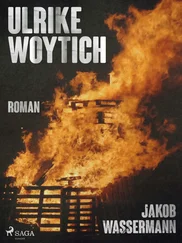

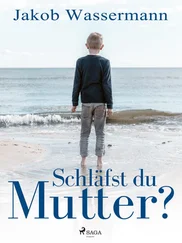
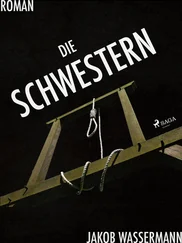
![Jakob Wassermann - Issue Does Not Exist],errors:{](/books/585068/jakob-wassermann-issue-does-not-exist-errors-thumb.webp)

